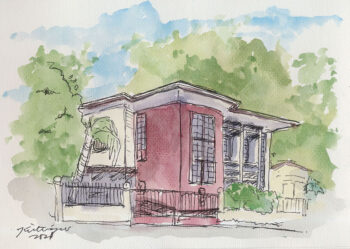1st of a six-part series
CAGAYAN DE ORO CITY (MIndaNews/10 March) — This six part series is based on an article I wrote with Atty. Janice Lee entitled “The Draft Bangsamoro Basic Law: Overcoming Constitutional Challenges” which Ateneo de Davao University just published in a Compendium on the Draft Bangsamoro Basic Law. The starting point of our analysis of the draft Bangsamoro Basic Law (BBL) is that it is a legislative enactment that will implement the provisions of the peace agreements aimed at resolving the conflict situation in Mindanao. With this in mind, we believe that an evaluation of the draft bill must not only look at its Constitutional fitness, but also be sensitive to its political history. It must of course also be analyzed under the rubric of Supreme Court rulings.
In our analysis, we conclude that the draft BBL contains no patently unconstitutional provisions. Indeed, the Bangsamoro created under the BBL will replace the ARMM, the autonomous region created under Republic Act No. 6734 as provided for under the Constitution. That Congress may enact such a law can hardly be contested. As a rule, Congress enjoys plenary powers of legislation all subjects, whether pertaining to persons or things, within its territorial jurisdiction, either to introduce new laws or repeal the old, unless prohibited expressly or by implication by the Constitution or limited or restrained by its own. Further, the political provisions of the draft BBL, and the extent of the powers granted to the Bangsamoro, must be made in light of the purpose behind the Constitutional provisions for autonomous regions, which is to allow the separate development of peoples with distinctive cultures and traditions.
There is nothing wrong with the fact that the BBL is a product of the negotiations between the Philippine government and the Moro Islamic Liberation Front (MILF). In the North Cotabato case, which declared unconstitutional the Memorandum of Agreement on Ancestral Domain (MOA-AD), the Supreme Court held that the President has the power to negotiate peace with the MILF, and to determine in what form and manner the peace process should be conducted, which includes the signing of peace agreements. It is also a matter of judicial notice that the President also has the authority to propose new legislation to Congress, as is done in the case of the BBL.
The constitutional basis of the BBL
To justify the enactment of the BBL, it must be legally sound on at least two points: (1) the act of passing such a law of its kind must be legal; and (2) the contents of the law must conform to the Constitution.
On the first point, Section 18, Article X of the 1987 Constitution provides the basis for the enactment of an organic act for the autonomous region created in Muslim Mindanao, thus this section provides: “The Congress shall enact an organic act for each autonomous region with the assistance and participation of the regional consultative commission composed of representatives appointed by the President from a list of nominees from multi-sectoral bodies. The organic act shall define the basic structure of government for the region consisting of the executive department and legislative assembly, both of which shall be elective and representative of the constituent political units. The organic acts shall likewise provide for special courts with personal, family, and property law jurisdiction consistent with the provisions of this Constitution and national laws.” The same section also provides: “The creation of the autonomous region shall be effective when approved by majority of the votes cast by the constituent units in a plebiscite called for the purpose, provided that only provinces, cities, and geographic areas voting favorably in such plebiscite shall be included in the autonomous region.”
On the second point, the Constitution also provides that the organic act shall define: (1) the basic structure of government, consisting of the executive department and legislative assembly; (2) special courts with personal, family, and property law jurisdiction. Section 20, Article X of the Constitution provides for the powers that the said legislative assembly may exercise: “ (1) Administrative organization; (2) Creation of sources of revenues; (3) Ancestral domain and natural resources; (4) Personal, family, and property relations; (5) Regional urban and rural planning development; (6) Economic, social, and tourism development; (7) Educational policies; (8) Preservation and development of the cultural heritage; and (9) Such other matters as may be authorized by law for the promotion of the general welfare of the people of the region.”
As the Supreme Court has noted in the 2004 case of Disomangcop v. DPWH: “The need for regional autonomy is more pressing in the case of the Filipino Muslims and the Cordillera people who have been fighting for it. Their political struggle highlights their unique cultures and the unresponsiveness of the unitary system to their aspirations . . . Perforce, regional autonomy is also a means towards solving existing serious peace and order problems and secessionist movements. Parenthetically, autonomy, decentralization and regionalization, in international law, have become politically acceptable answers to intractable problems of nationalism, separatism, ethnic conflict and threat of secession.”
Consistent with this pronouncement of the Supreme Court, the draft BBL generally conforms to, and is within the bounds of, the 1987 Constitution. It neither creates a separate state within the Philippines nor provides for powers which are beyond what is granted to autonomous regions. The provision for a parliamentary system of government for the Bangsamoro is likewise valid, as this remains to be elective and representative of the constituent political units.
Need for clarifications
While there is no doubt that the Bangsamoro autonomous region can be validly created. a number of clarifications must be made to the draft BBL in order to leave no space for any misinterpretation. In particular, we suggest that Congress draft and incorporate a section in the law that would provide a definition of such key terms as “asymmetrical relationship”, “Bangsamoro”, and “exclusive powers”. These suggested definitions do not alter or diminish the rights granted to the Bangsamoro under the draft BBL, but simply aim to couch these terms in a language that will leave no room for misinterpretation as to their Constitutional validity. We also propose revisions to certain provisions on natural resources, indigenous peoples’ rights, human rights, judicial review and the justice system in order to allay any concerns of them being beyond the fold of the Constitution.
With regard to the core territory of the Bangsamoro and the plebiscite to be conducted, our study also recognizes legitimate concerns on their practical implications. Pertinently, the provisions ostensibly allowing municipalities and barangays to vote for, and become part of, the Bangsamoro without the participation of the provinces to which they belong may raise issues about governance and jurisdiction. These issues must be approached carefully so as not to violate any Constitutional provisions or Supreme Court pronouncements.
The next five articles will elaborate in detail some of the clarifications needed to address legal and constitutional issues around the BBL. (MindaViews is the opinion section of MindaNews. Dean Tony La Viña is a human rights and environmental lawyer from Cagayan de Oro City. He was a member of the Government of the Philippines Peace Panel that negotiated with the MILF from January-June 2010. He is currently the Dean of the Ateneo School of Government. Dean Tony can be reached at Tonylavs@gmail.com. Follow him on Facebook: tlavina@yahoo.com and on Twitter: tonylavs.)
Tomorrow: Bangsamoro not a sub-state







